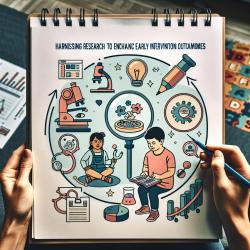As practitioners dedicated to improving outcomes for children, understanding the nuances of ADHD and its impact on executive function and attention is crucial. The study titled Executive Function and Attention Performance in Children with ADHD: Effects of Medication and Comparison with Typically Developing Children offers valuable insights that can be directly applied to clinical practice.
In this study, 50 treatment-naïve children with ADHD, 50 medicated children with ADHD, and 50 typically developing children were assessed using the Mini International Neuropsychiatric Interview for Children and Adolescents (Mini Kid) and the Test of Attentional Performance for Children (KiTAP). The findings underscore the importance of medication in managing ADHD symptoms and highlight specific areas where children with ADHD struggle compared to their typically developing peers.
Key Findings
- Executive Function Deficits: Treatment-naïve children with ADHD showed significant impairments in executive function measures compared to both medicated ADHD children and typically developing children. This highlights the critical role of early and effective intervention.
- Impact of Medication: Medicated children with ADHD performed similarly to typically developing children on most executive function measures. This suggests that medication can significantly mitigate the executive function deficits associated with ADHD.
- Attention Performance: The study found that treatment-naïve children with ADHD exhibited greater variability in reaction time and made more errors and omissions on attention tasks compared to their medicated peers and typically developing children.
Practical Applications for Practitioners
These findings provide several actionable insights for practitioners:
- Early Intervention: Identifying and treating ADHD early can significantly improve executive function and attention performance. Encourage parents and educators to seek professional help as soon as ADHD symptoms are observed.
- Medication Management: The positive impact of medication on executive function and attention performance suggests that medication should be considered as part of a comprehensive treatment plan for children with ADHD.
- Ongoing Assessment: Regularly assess the executive function and attention performance of children with ADHD to monitor the effectiveness of interventions and adjust treatment plans as necessary.
- Multimodal Approach: Combine medication with evidence-based non-medication interventions, such as behavioral therapy and cognitive training, to address the multifaceted nature of ADHD.
Encouraging Further Research
While this study provides valuable insights, there is a need for further research to explore the specific effects of different medications on executive functions and to identify the most effective combination of interventions. Practitioners are encouraged to stay informed about the latest research and to consider participating in or conducting studies to contribute to the growing body of knowledge on ADHD.
To read the original research paper, please follow this link: Executive Function and Attention Performance in Children with ADHD: Effects of Medication and Comparison with Typically Developing Children.










